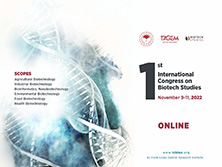Biotech Studies
2025, Vol 34, Num, 1 (Pages: 018-028)
Investigation of anti-inflammatory drug usage in the treatment of epilepsy through analyzing the epilepsy-inflammation relation at the molecular level
2 Science and Advanced Technology Research Center (BİLTAM), Istanbul Medeniyet University, 34700, Istanbul, Türkiye DOI : 10.38042/biotechstudies.1662530 - Epilepsy is a neurological brain disorder that affects social life by causing seizures, loss of consciousness, and muscle contractions. The causes of epilepsy include tumors, genetic diseases, brain injuries during childbirth, and infections affecting the body. Antiepileptic drugs are commonly used for treatment, but about one-third of individuals continue to experience seizures despite medication. These drugs effectively prevent seizures but do not address the underlying mechanisms of the disease. Inflammation, i.e. biological response of the body's immune system to harmful stimuli, can be the result or cause of various diseases and is recognized as one of the contributing factors to epilepsy. This study investigates the molecular-level connection between inflammation and epilepsy through mapping transcriptomic data to reconstructed protein-protein interaction (PPI) network, reveal important subnetworks and detect potential common drug targets for inflammation and epilepsy. The most connected hub proteins of the subnetwork related to inflammation, derived from the expression data mapping are AKT1, IL6, and TLR4. After conducting molecular docking studies of anti-inflammatory drugs with these targets, Resveratrol and Fentanyl were identified as potential drugs with anti-inflammatory effects and suitable for epilepsy. Thus, we suggest further experimental studies for validation of using anti-inflammatory drugs Resveratrol and Fentanyl against epilepsy. Keywords : Proteome Transcriptome Protein-protein interaction Subnetwork analysis Molecular docking
















